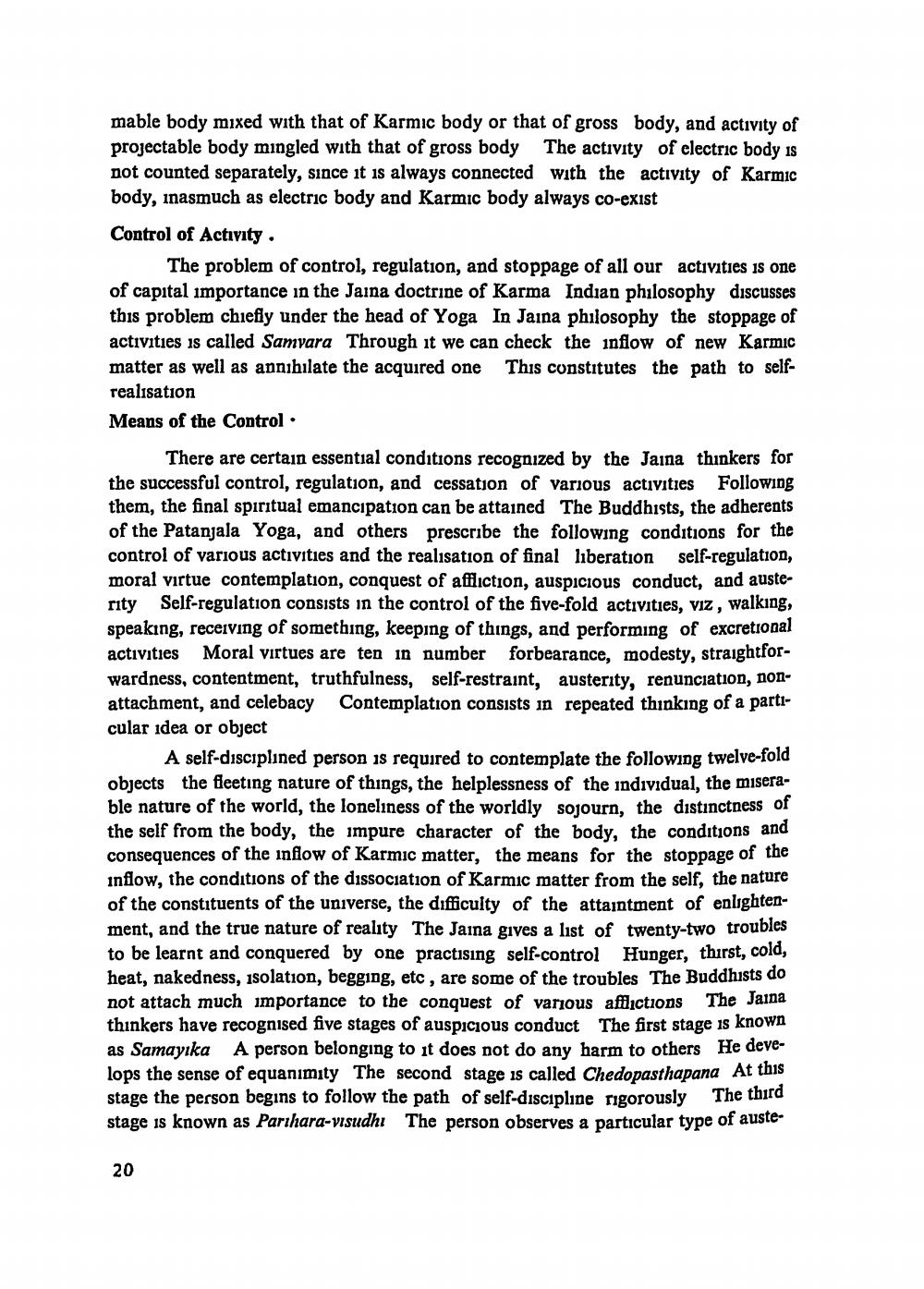________________
mable body mixed with that of Karmic body or that of gross body, and activity of projectable body mingled with that of gross body The activity of electric body is not counted separately, since it is always connected with the activity of Karmic body, inasmuch as electric body and Karmic body always co-exist Control of Activity
The problem of control, regulation, and stoppage of all our activities is one of capital importance in the Jaina doctrine of Karma Indian philosophy discusses this problem chiefly under the head of Yoga In Jaina philosophy the stoppage of activities is called Samvara Through it we can check the inflow of new Karmic matter as well as annihilate the acquired one This constitutes the path to selfrealisation Means of the Control
There are certain essential conditions recognized by the Jaina thinkers for the successful control, regulation, and cessation of various activities Following them, the final spiritual emancipation can be attained The Buddhists, the adherents of the Patanjala Yoga, and others prescribe the following conditions for the control of various activities and the realisation of final liberation self-regulation, moral virtue contemplation, conquest of affliction, auspicious conduct, and austerity Self-regulation consists in the control of the five-fold activities, viz, walking, speaking, receiving of something, keeping of things, and performing of excretional activities Moral virtues are ten in number forbearance, modesty, straightforwardness, contentment, truthfulness, self-restraint, austerity, renunciation, nonattachment, and celebacy Contemplation consists in repeated thinking of a particular idea or object
A self-disciplined person is required to contemplate the following twelve-fold objects the fleeting nature of things, the helplessness of the individual, the miserable nature of the world, the loneliness of the worldly sojourn, the distinctness of the self from the body, the impure character of the body, the conditions and consequences of the inflow of Karmic matter, the means for the stoppage of the inflow, the conditions of the dissociation of Karmic matter from the self, the nature of the constituents of the universe, the difficulty of the attaintment of enlightenment, and the true nature of reality The Jaina gives a list of twenty-two troubles to be learnt and conquered by one practising self-control Hunger, thirst, cold, heat, nakedness, isolation, begging, etc, are some of the troubles The Buddhists do not attach much importance to the conquest of various afflictions The Jaina thinkers have recognised five stages of auspicious conduct The first stage is known as Samayıka A person belonging to it does not do any harm to others He develops the sense of equanimity The second stage is called Chedopasthapana At this stage the person begins to follow the path of self-discipline rigorously The third stage is known as Parihara-visudhı The person observes a particular type of auste
20




